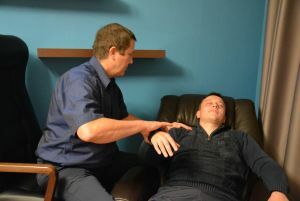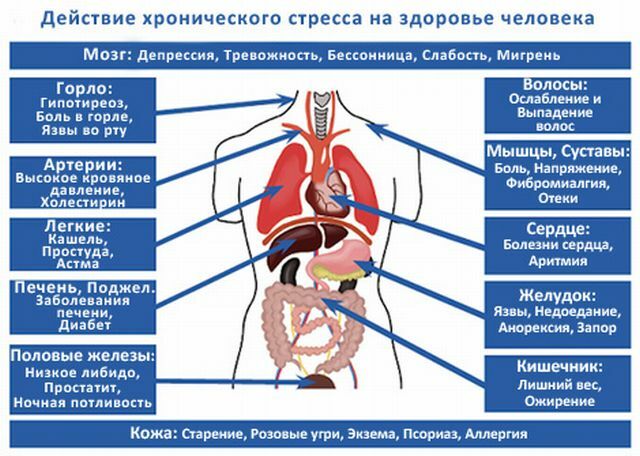 About this phenomenon as aggravation, they say when the patient has not that there is absolutely no pathology - it is, but it is much less expressed than the patient himself tries to present to the doctor.
About this phenomenon as aggravation, they say when the patient has not that there is absolutely no pathology - it is, but it is much less expressed than the patient himself tries to present to the doctor.
This is its fundamental difference from the simulation, when the disease is completely absent and the patient is not.
A vivid example of aggravation can be a child who shows an abrasion on his knee with such painful comments, as if it is a question of the end of his life. In this case, everything is clear: the child wants to be pitied.
Typical portrait of the aggravant
What does an aggravant-adult want? About the same. After all, most often people who are lonely and helpless in their life who have no one to rely on often turn to a doctor with such greatly exaggerated complaints. Either having a family, but not finding support in it.
The portrait of a typical representative of this category in everyday life is as follows. This elderly woman is already a woman with no established destiny, usually childless. She is burdened with numerous problems with work and is ready to "cry in the vest" to the first one with whom she managed to talk.
To get rid of such a person, not hurrying to shut up and finding new reasons to detain someone else's attention even for a few minutes, is extremely difficult.
Very characteristic is the face. These are sharpened features, mournfully pursed lips with lowered corners of the mouth and equally mournful, pleading-waiting and simultaneously empty eyes, as if everything had been decided and finished for a long time. And, not in her favor.
Hand movements express impotence, they are often weak-willed and helplessly falling, although outwardly their development looks quite normal. 
The manifestation of emotions during the presentation of endless complaints or the detailing of one of them looks at the same time as carefully restrained, mean-minded, but at the same time methodical and unhurried. Even the pauses between the phrases look like a continuation of complaints.
Behavior in the psychoneurologist's office is not very different from the behavior in everyday life and leaves the impression that the patient has nowhere else to go, and that she is ready to aggravate the rest of her life in the doctor's office.
Men-aggravants look about the same and stick to about the same line of behavior. Behavior, dictated by the peculiarities of a certain mentality.
Variety of causes and types
Active promotion of deterioration of one's own health, or delayed recovery measures refer to active aggravation behavior, while exaggeration of the severity of the condition and significance of individual symptoms is regarded as passive aggravation.
By types, aggravation disorders are divided into:
- subconscious;
- willful;
- pathological.
The causes of their occurrence completely or partially correspond to the category of the disorder.
If the subconscious mind is based on the existence of a real physical illness, then the intentional one is a certain line of conduct that implies gaining profit, or giving the current events the desired outcome.
The pathological exaggeration of the severity of one's condition is characteristic of mentally ill or persons with mental states approaching psychopathology. That is, suffering:
- hypochondria;
- Iatrogenia;
- with psychopathy;
- hysteria;
- with an anxiety-hypotensive syndrome.
To draw a strict line between aggravation of the subconscious and pathological is as difficult as estimating whether the patient is truly sick. For the subconscious motivation in both versions is the same - attracting attention, gaining sympathy and moral support.
On the Aggravation of Psychological and Psychiatric Disorders
 In easily instigated people with psychological disorders, aggravation leads to an increased suspiciousness, which makes it necessary to thoroughly examine the indices of one's health at home by all available methods in search of abnormalities. It can be a measurement of blood pressure and pulse, blood sugar, looking in the mirror of the tongue or studying the surface of the skin.
In easily instigated people with psychological disorders, aggravation leads to an increased suspiciousness, which makes it necessary to thoroughly examine the indices of one's health at home by all available methods in search of abnormalities. It can be a measurement of blood pressure and pulse, blood sugar, looking in the mirror of the tongue or studying the surface of the skin.
And who is looking for, then sure to find. The next question is: what did self-inquiry give?
In search of an answer to this question, the near-medical literature is systematically studied, television programs devoted to health are looked through, or one should seek advice from "fortune-tellers" - fortunetellers and psychics. The information obtained contributes to an even greater confidence in the severity of the symptom present and the inevitable fatal outcome.
Conducted medical studies do not convince the patient of the insignificance of his existing disorder, on the contrary, lead to the conviction that the doctors are hiding something from him. Hence the perseverance of the requirements for the repetition of the study, and as carefully as possible.
Aggravation in psychiatric disorders is the patient's conviction with a proven stable mental disorder in a mortal danger concealed behind the innocuous symptom. So, twice repeated diarrhea, can be regarded as a sign that after the eruption from the anus of intestinal contents, the intestine will turn out of it, and then the whole organism.
In psychiatric illnesses, the patient's attention can either be stubbornly focused on one particular disturbing symptom, or fixed on successive advancing conditions. The second category is more characteristic of people of elderly and senile age.
Aggravation in psychiatric disorders is divided into:
- metagraguration;
- overhang;
- dissimulation.
The first option involves deliberately delaying the most acute stage of the disease, the second - complaints of symptoms, which can not be in principle with a really established disease.
On the dissimulation speak in the case of an attempt to conceal individual symptoms or the fact of aggravation of psychopathology for various reasons dictated by the disease.
For the diagnosis of
In the medical investigation of aggravation, persistent patient arguments in favor of having a particular symptom or  syndrome are only taken into account, but the final judgment is derived on the basis of an analysis of objective data established by accurate studies.
syndrome are only taken into account, but the final judgment is derived on the basis of an analysis of objective data established by accurate studies.
Including EEG, radiography with the study of cerebral vessels and other methods that allow to assess the level of cerebral blood supply.
In the case of a pathological case, the patient is examined for a mental disorder. In the case of a crime related to a crime, a forensic medical examination is carried out, and if necessary, a survey is conducted in a stationary setting. In case of revealing and proven fact of pathological aggravation, a person is recognized as not responsible for his actions.
General approach to treatment
For the application of the most rational and maximally gentle method of therapy, the type of aggravation disorder is taken into account.
And if in the case of willful, exposed pseudo-patient is responsible before the law, then in the variant of subconscious disorder methods from the arsenal of psychotherapy are applied: 
- hypnotherapy;
- auto-training;
- relax therapy and the like.
If necessary, medication is prescribed, including the reception of targeted and general action:
- vasodilators;
- sedative;
- nootropic;
- restorative.
Rationally application of exercise therapy, massage and similar methods, heals not only the psyche of the patient, but also his whole body.
Pathological aggravations having a psychiatric basis are treated by physicians of the appropriate profile.
On the consequences of
Given the thin line separating the neurotic disorder from a serious mental pathology, often flowing into the psychiatric, relatives and close, it is necessary to draw the attention of the patient to the fact of increasingly frequent cases of aggravation. And then gently encourage him to take measures to eliminate the causes that cause it. Measures taken together with the patient.
Measures that do not allow the node of fears and life problems to transmit every day an increasingly thinning immaterial structure called the will to live.



